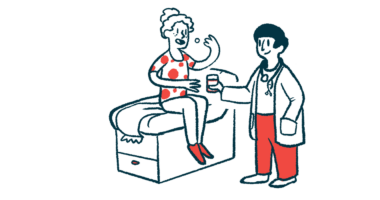NM5072, for anemia in PNH patients, named orphan drug in US
Company planning to open Phase 2 clinical trial of potential treatment

The U.S. Food and Drug Administration (FDA) has given orphan drug designation to NM5072, an experimental treatment for anemia in people with paroxysmal nocturnal hemoglobinuria (PNH).
The potential therapy showed safety and tolerability in an initial clinical trial in healthy volunteers, and a Phase 2 trial in PNH patients is being planned, NM5072’s developer, NovelMed, reported.
Orphan drug designation is given to medications intended to treat rare diseases — those affecting fewer than 200,000 people in the U.S. It offers pharmaceutical companies certain advantages, including exemption from regulatory fees, eligibility for tax credits, and seven years of market exclusivity if the treatment is approved.
“We are thrilled by the FDA’s decision, which highlights the demand for groundbreaking therapies for individuals grappling with PNH,” Robert Bard, NovelMed’s vice president of regulatory affairs, said in a company press release.
Anemia is a common PNH symptom, due to red blood cell loss
PNH is characterized by the destruction of blood cells. Anemia, the loss of red blood cells that transport oxygen throughout the body, is a common disease symptom and one known to cause fatigue, shortness of breath, and dizziness.
The disease is due to mutations that arise in the stem cells responsible for giving rise to new blood cells, which will carry the same mutations. Commonly, these mutations are found in the PIGA gene. Cells with PIGA mutations lack certain surface proteins that are needed for the immune system to recognize and accept them as healthy cells.
Their absence can activate a part of the immune system known as the complement cascade, which launches an abnormal inflammatory attack that destroys blood cells. Two major pathways — the classical and the alternative pathways — can activate the complement cascade; in PNH, blood cell destruction mainly is driven by the alternative pathway.
“PNH is a rare disease which involves a range of blood cells that contribute to debilitating symptoms for patients, including anemia, fatigue, and severe pain,” said Rekha Bansal, PhD, NovelMed’s CEO.
Currently approved PNH treatments generally work by blocking steps leading to the activation of both complement pathways. While these treatments can effectively control the disease, inhibiting the complement system affects its ability to protect the body against invaders like microbes, putting patients at risk of serious infection.
NM5072, an antibody-based therapy, is designed to target a protein called properdin, a component of the alternative complement pathway, while allowing the classical complement pathway to continue to work as it normally would.
“We are hopeful that NM5072, with its unique mechanism of action that targets the top of the complement cascade, could become a promising treatment to improve outcomes in these patients,” Bansal said.
Reasonable treatment safety, tolerability seen in Phase 1 study
According to the company, a Phase 1 trial in 48 healthy volunteers demonstrated that NM5072 was generally safe and well-tolerated when given at doses up to 20 mg/kg. Moreover, the therapy was shown to inhibit the alternative complement pathway as intended, for a duration dependent on the dose given.
NovelMed is preparing for a Phase 2 trial of the therapy in PNH patients who have not used other complement inhibitor treatments.
“While the drug is currently in the form of an IV [intravenous, into-the-vein] formulation, subcutaneous [under-the-skin] formulations are being planned for future trials,” Bansal said.
The company also is preparing to open Phase 2 trials of NM5072 in other complement-driven diseases, including C3 glomerulopathy and atypical hemolytic uremic syndrome (aHUS).




